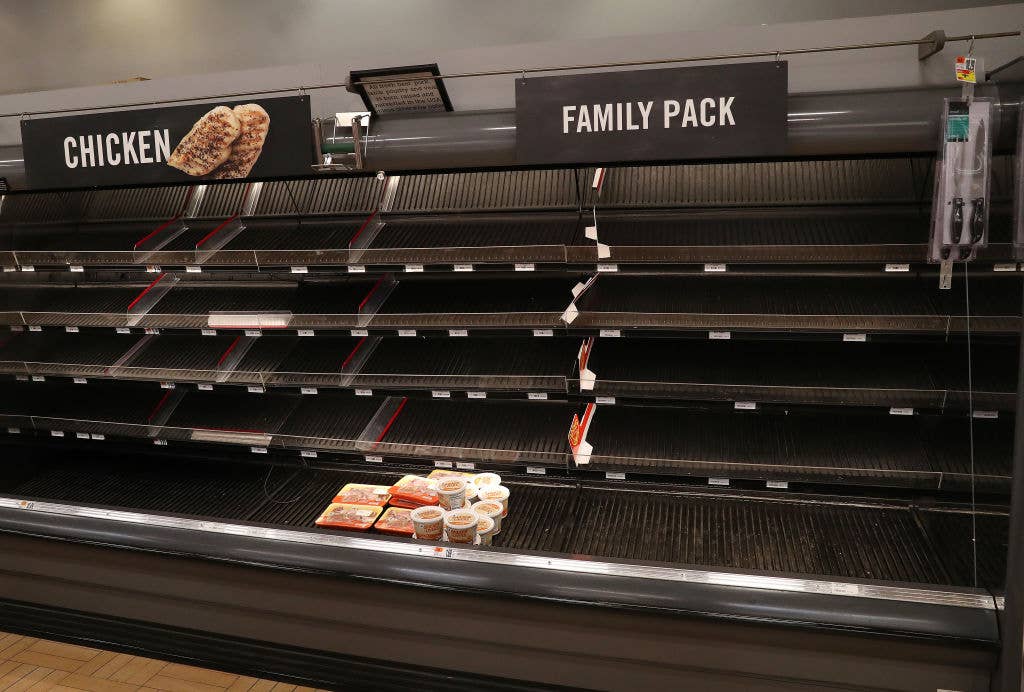
Meat Shortages Have Plant-Based Companies Rushing to Fill the Void
As shortages of meat grow due to the COVID-19 crisis, plant-based meat companies are leaping into the void, according to The Wall Street Journal. As meat producers experienced disruption in their supply chain, alternative makers like Beyond Meat and Impossible Foods have rushed to fill the shelves, often at the request of stores. After a bumpy period, shares of Beyond Meat have recently jumped over 500 percent since their IPO, while Impossible Foods has raised over $500 million in its latest round of funding. bringing its total haul to date to $1.3 billion.
The market for meatless alternatives is growing. US
Impossible Foods CFO David Lee has said the company has adjusted its operational approach and is accelerating growth while keeping workers safe, something that the traditional meat industry has struggled with. But as meat processing plants have been forced to re-open and companies are assuring processing plant workers that it is safe to return to work, reports have surfaced that 5,000 meat processing workers have been affected by COVID-19 and several dozen have died. So while these news stories are circulating and the meat shortages are showing up in the form of empty meat refrigerators at stores, the damage is done. Enter the plant-based alternatives, more than happy to jump onto those empty shelves.
At the same time, Americans are eating more plant-based foods. One recent survey found that 23 percent of consumers are choosing to eat more plant-based meals, according to Self.inc, a financial credit company. And the meat-alternatives are happy to fill the gap and oblige.
Plant-Based Meats Are Lowering Their Prices to Be More Attractive to Consumers
US retail sales of plant-based foods rose 11 percent to over 4.5 billion in one year, even before COVID-19 made these foods a more attractive choice for consumers This outpaces general food sales by five times, according to industry reports. The purchase price of plant-based foods would ordinarily be expected to increase as market demand grows. But in fact, the major players are ramping up production, discounting their suggested retail prices and driving down costs to be more competitive.
The reason these plant-based foods have been steadily on the rise is largely due to an effort by Americans to eat healthier; 40 percent of consumers say that is their motivation for choosing to eat plant-based alternatives. Consumers also cite concerns over the environment since industrial farming and animal agriculture is one of the largest contributors to greenhouse gases. Research shows that eating just one plant-based meal a day for a year is the equivalent of saving enough emissions to drive across country from LA to New York.
Big Food Companies Are Jumping on the Plant-Based Bandwagon
Companies like Nestle, Tyson Foods, Conagra Brands, and Unilever have all launched into the plant-based category, joining Beyond Meat and Impossible in offering plant-based meat and dairy alternatives. The biggest problem to date with Beyond has been supply chain, since demand outpaced production for a period, something the company has since fixed.
Every time a food threat comes along, whether it be a pathogen or the latest problems with the processing plants that have been plagued by COVID-19 outbreaks that forced Smithfield and Tyson to shutter plants due to dangerous conditions for workers, the plant-based makers have pointed out that they can speed up production, and market their offerings that are not as sensitive to shelf-life issues. Dairy farmers have been forced to dump milk and eggs and offload spoiling products as their supply chain was interrupted when restaurants, schools, airlines, hotels, and other institutions closed during the pandemic.
Plant-Based Companies Step into the Void
Sales of meat alternatives have topped $800 million in the past year, and plant-based food makers are racing to fill in for missing meats and fill the empty supermarket meat cases. meatpacking plants. sometimes at the request of grocery chains that are running short of staple meat products. The meat processors say the supply deficit is temporary and promise to refill the shelves soon, but by then enough open-minded consumers may have tried the alternatives and liked it. By the time the meat returns to the market, consumers may no longer care about the answer to the age-old question: "Where's the beef?"
More From The Beet






